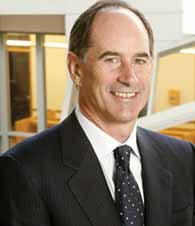initiates a
successful frontier initiative that goes
on to become a part of the society's
civil foundation.
You have observed, "without a
doubt, some companies are nearparagons
of socially responsible
behavior. They support worthy
causes in the communities in which
they operate." Why do you think not
many/all companies follow this as a
benevolent dictate? What do you
think prevents them subscribing to
such responsible behavior?
I think that it takes inspired, forwardthinking
leadership and many
corporations do not have anything
resembling either inspired or
forward-thinking leadership.
However, such corporations can
follow and their following makes a
positive difference to society. The
key, though, is to have something to
follow and this is why the exemplary
corporations are so important—
others follow their lead. So their
positive effect is magnified.
In the case of Malden Mills, Aaron
Feuerstein could take such a
benevolent decision owing
primarily to the ownership
structure? However, in a (highly)
diversified holding company, how
easy or difficult is it to enact such a
decision-making?
I would agree that it is easier in a
private company. However, I think
that inspired leadership of a
diversified public company can
show its shareholders that good CSR
is intelligent policy and this is why I
wrote the virtue matrix and am
continuing to work on simple but
rigorous processes for creating a
virtue matrix strategy. CEO's need
help in making the case for CSR in a
rigorous and clear way and the virtue
matrix helps on that front.
From the Malden Mills (Aaron
Feuerstein) example, is it correct to
surmise that most of the times it is
shareholders (in their aspiration for
better returns) that scuttle CSR
initiatives and therefore, corporates
(leaders) are crippled?
That generalization is too dark for me.
I would say that shareholders need a
coherent and powerful story to be
convinced of any major corporate
investment, whether CSR or not. A
CEO who can't formulate coherent
and powerful stories will be crippled
by shareholders regardless of whether
he/she is dealing with CSR or a new
product launch or the building of a
new plant. A CEO who can formulate
coherent and powerful stories will be
able to do whatever he/she thinks is
important to the corporation.
You have remarked that, "Thus,
executives' commendable concern
for their shareholders' wealth can
sometimes stifle innovations in
corporate social responsibility." How
do you think the executives should
resolve such a dilemma?
The most important thing for them to
do is distinguish between the
strategic and structural frontiers.
Solo action in the structural frontier
Interview 6
is what loses corporations money
and credibility mainly because
actions are doomed to failure. The
CEO must distinguish when the
corporation must partner with others
for joint action (structural frontier)
versus go alone (strategic frontier). If
a CEO can make that distinction and
invest accordingly the dilemma will
be resolved.
